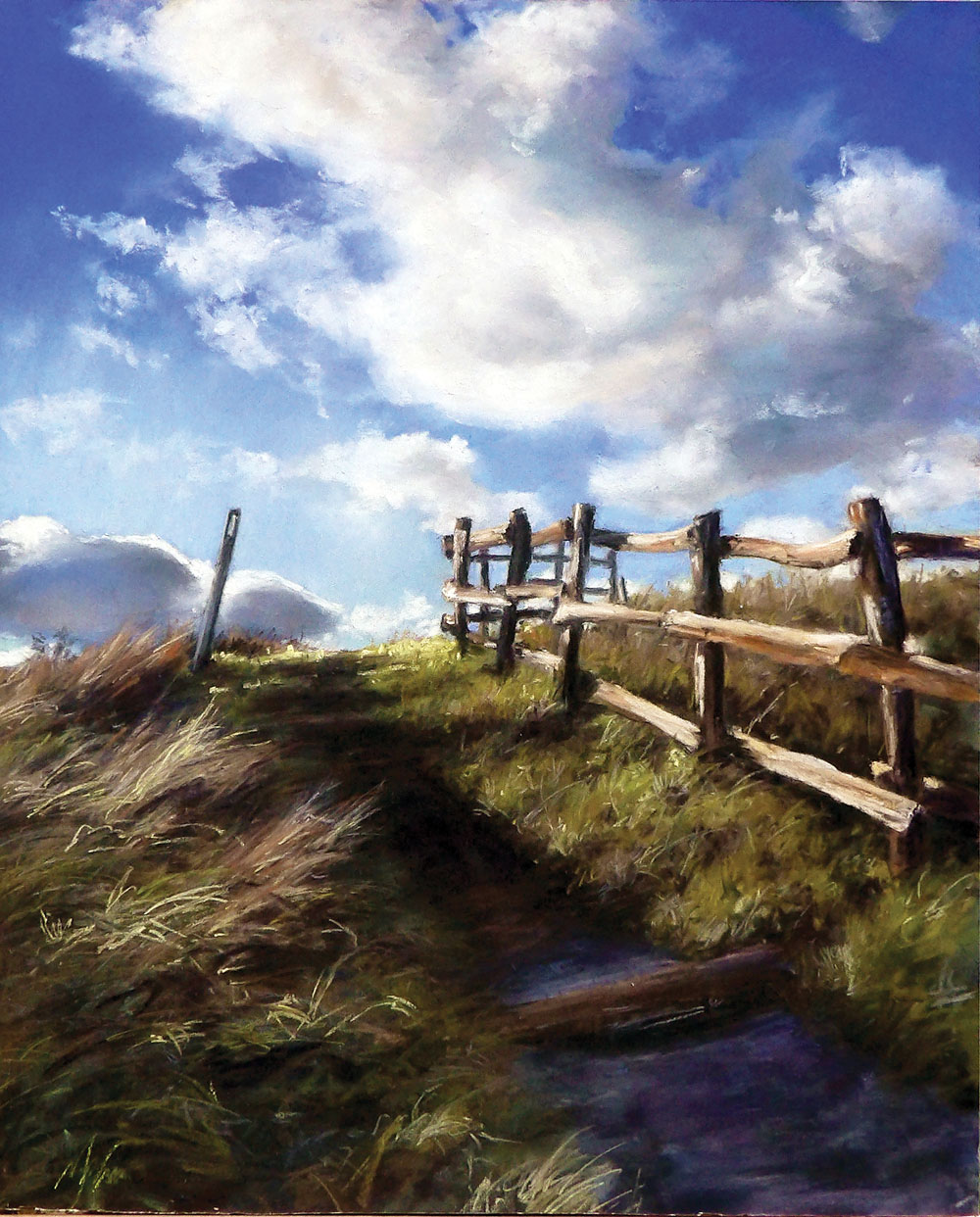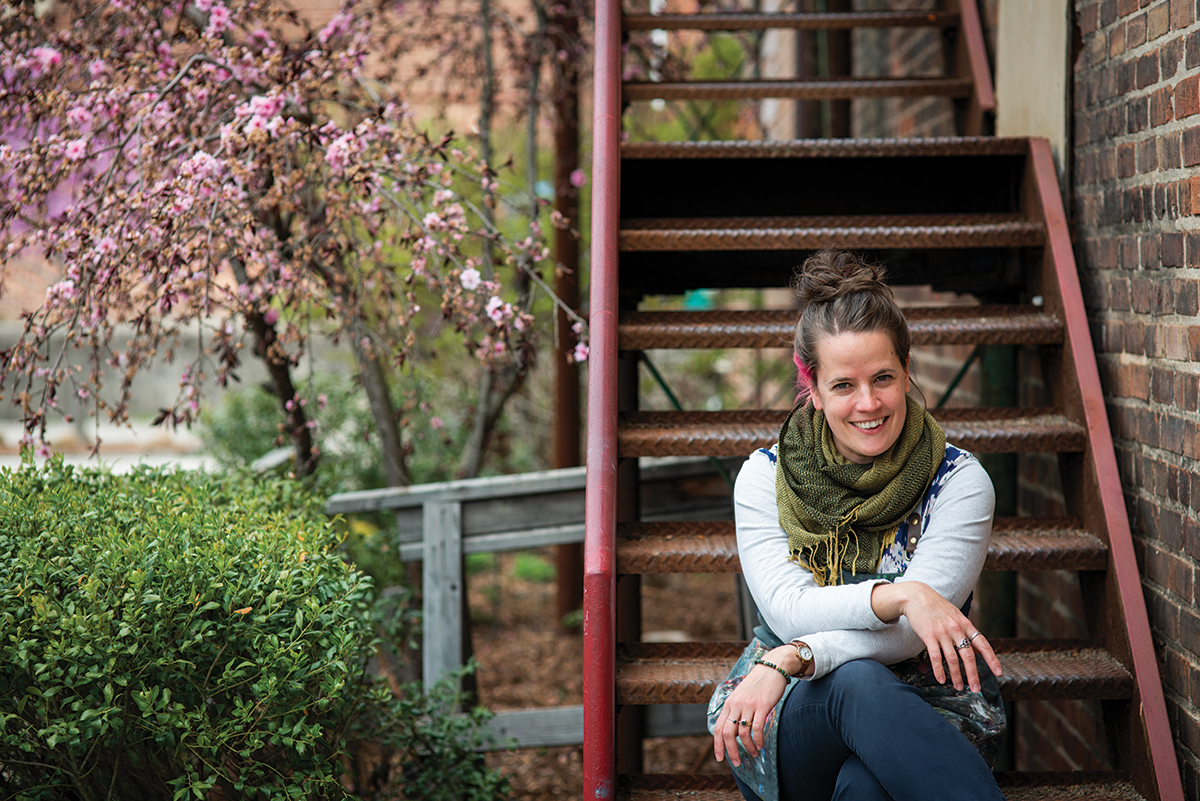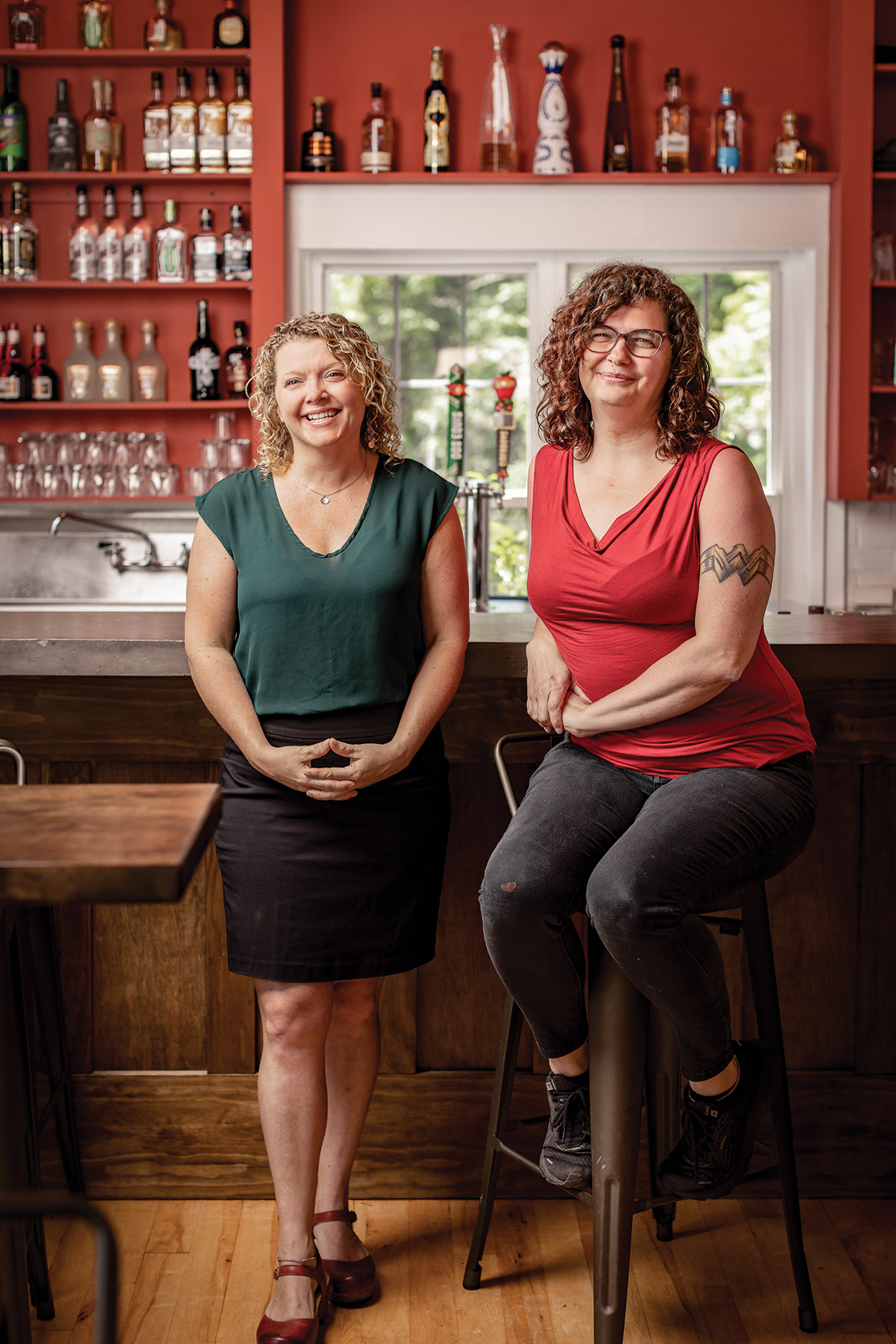How one area fiber farm is getting through 2020

MAKING HAY WHILE THE SUN SHINES
Carol and Bill Guzewicz of Hidden Gap Farm Alpacas in Saluda.
Photo by Clark Hodgin
In assessing the pandemic’s economic fallout, alpacas are seldom the first casualties mentioned. And yet with few traditional fiber markets still open, some keepers of this ancient Incan animal are struggling to keep their lights on and their fences mended.
Retired tech professionals Carol and Bill Guzewicz have owned Hidden Gap Farm Alpacas in Saluda since 2007. Bill describes himself as the farm’s heavy lifter and Carol as the fiber artist. Each year, she processes 48 to 80 pounds of alpaca flannel — a luxurious and lanolin-free alternative to wool.

Royal Silver Reflection, commonly known as Silver, is ready for her closeup.
Photo by Clark Hodgin
She works the material into wet-felted hats, hair clips, barrettes, and dryer balls (which help keep laundry from clumping together), selling her wares at small shops and festivals. Carol’s biggest venue is the Southeastern Animal Fiber Fair, an annual three-day expo — usually held at the WNC Agricultural Center in October — that centers on public workshops and demos in spinning, weaving, knitting, and felting, plus industry networking on animal-husbandry topics. But with the safety of participants in mind, organizers were forced to cancel for the first time in the event’s 26-year history.
Meanwhile, COVID-19 put the kibosh on six of Carol’s scheduled holiday markets and three events associated with Carolina Alpaca Breeders and Owners. Two mom-and-pop operations that sell her products have also closed their doors — one temporarily and the other for good.

IN THEIR ELEMENT
Being indigenous to the Andes, alpacas (including Thunderbolt, foreground) adapt well to a mountain climate.
Photo by Clark Hodgin
“The pandemic killed us this year,” admits Carol. The numbers are morose: Hidden Gap Farm is slated to gross only around 6 percent of last year’s sales. “Luckily, we are retired and don’t need that income to survive,” she explains, “but we are coming out of pocket for farm expenses. Normally, the farm pays for the farm.”
Finances aside, Carol and Bill are adjusting to the new normal. Their daily routine still includes a morning headcount and feeding, lunchtime cleaning of the paddock, and dinnertime feeding. Life is slower, though, says Carol. At the end of May, all 16 members of Hidden Gap’s fluffy, doe-eyed herd were shorn. But rather than rush to process the flannel for market, Carol reveled in the undertaking.

Carol digs her hands into some of the softest fiber around.
Photo by Clark Hodgin
“Most farmers send their fiber to the mill, but processing is part of the fun,” she says. “Each year, I just can’t wait to dig my hands into the fiber.”
The material is first sorted by quality. Leg hair might be used to embellish a hat, but never to make a fine scarf. Carol also never mixes fiber harvested from different alpacas — senior animals sport a coarser coat in comparison to youngsters — or even fiber harvested from one year to the next.

Carol uses alpaca fleece to make bespoke hats and other wearables and accessories.
Photo by Clark Hodgin
From there, she spreads the material on a table to hunt for vegetable matter and debris before it is soaked, rinsed, and dried. She then pulls out the “swing picker” — a tool Bill likens to a torture device: “Imagine if Edgar Allan Poe made a horror movie,” he jokes. The swing picker is essentially a wooden pendulum peppered with nails. As it moves back and forth, the device separates and fluffs the fiber into what is called a “cloud.” Finally, the picked fiber is fed into an electric drum carder — a fancy comb that arranges the hairs to all point in one direction. The result is a 20-inch-long batt of fiber.
“Then you can make things,” says Carol, launching into a detailed description of her newest endeavor: alpaca slippers. “The bottom of the slipper has to be just right; it can’t have any lumps or bumps. It took some trial and error, and I have eight pairs I can’t wear, but I finally did it.”

Berta gives the side-eye to this topsy-turvy year.
Photo by Clark Hodgin
While many folks who are homebound have been experimenting with mixing up pandemic sourdough starters or brewing homemade porters, Carol has dabbled in beaded hatbands and wet-felted flowers. Even if she can only sell the occasional dryer ball from her front door, there’s still joy in creating beautiful, functional products. It truly is a labor of love.
Alpacas are native to the high-altitude Andes mountains of South America, so Western North Carolina’s hilly terrain, the area’s relatively cool summer temperatures, and all the shade at Hidden Gap Farm contribute to a welcoming climate for them. Alpaca farmers in hotter areas of the East Coast “have issues with [their animals getting] heat stroke,” reveals Carol, “[but] we don’t.”

The fiber artist at her loom.
Photo by Clark Hodgin
Still, farm work is farm work, and much of what happens at Hidden Gap Farm is challenging and dirty — done out of respect for the animal and the fiber it produces. This past spring, for instance, when many were basking in life’s pandemic-slowed pace, taking time to enjoy the seasonal beauty, Carol and Bill were deworming alpaca. “Just checking poop to make sure it looks good,” describes Carol, quite blasé.
Things got even more personal during birthing season. Think: tending to a prolapsed uterus with a ten-pound bag of sugar. “I never thought I could do it, but boy, did I,” Bill says, explaining that a sugar solution applied topically to the uterus reduces swelling.
“I wasn’t here for that one, thankfully,” Carol laughs, though something in her voice suggests she would have happily lugged a ten-pound bag of sugar around for Berta, one of the farm’s first alpacas. “Farming is certainly a lifestyle, and it’s a lifestyle that we love.”
Hidden Gap Farm Alpacas, 8258 Howard Gap Road, Saluda. For more information and to view products, visit hgf.hiddengapfarm.com.




Carol and Bill are awesome. They lovingly and pragmatically care for their beautiful alpacas – and produce amazingly beautiful and useful products from their hair. They are quite a team. And wonderful, loving and fun friends. LOVE reading this article on them. Looking forward to things returning to more normal conditions so they can sell their handiwork.